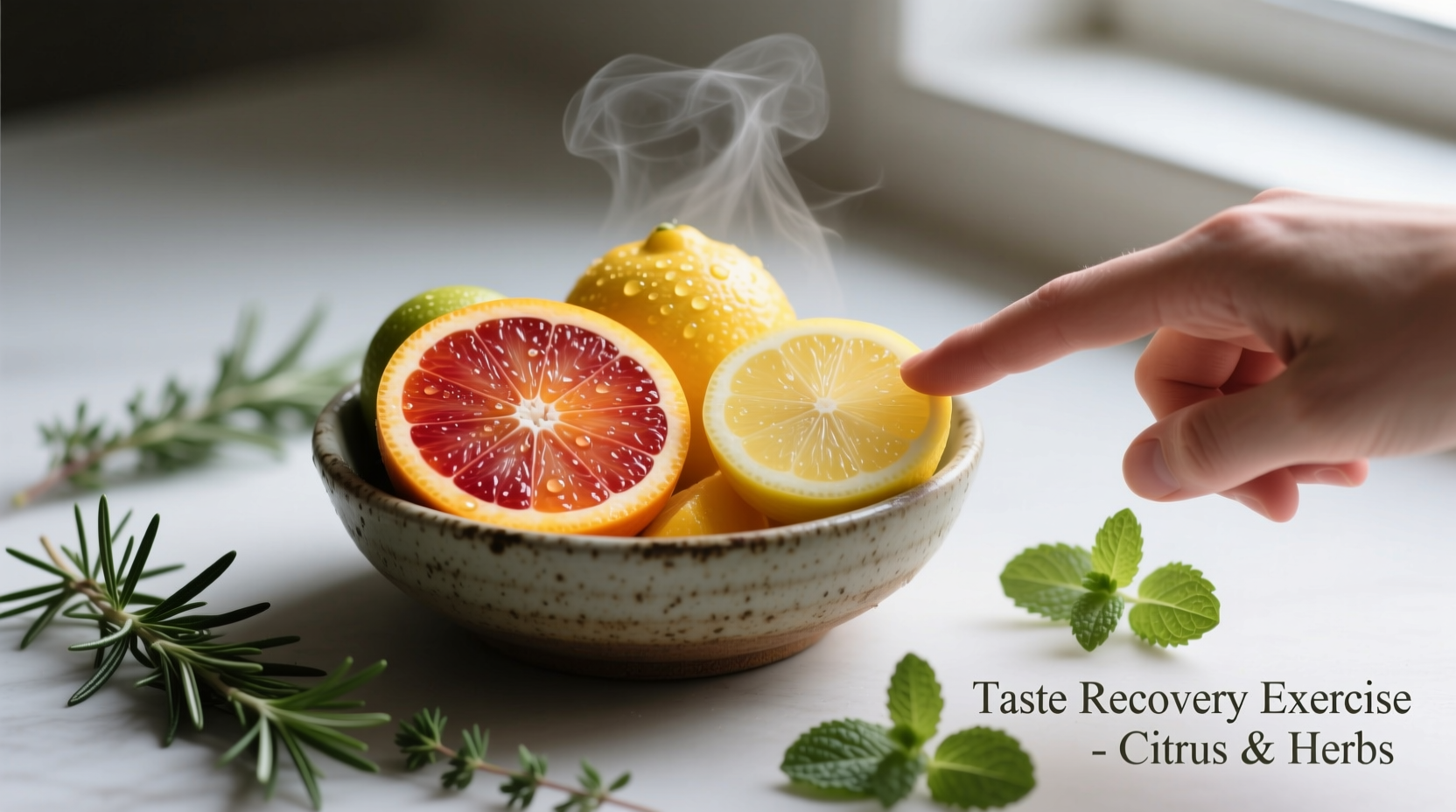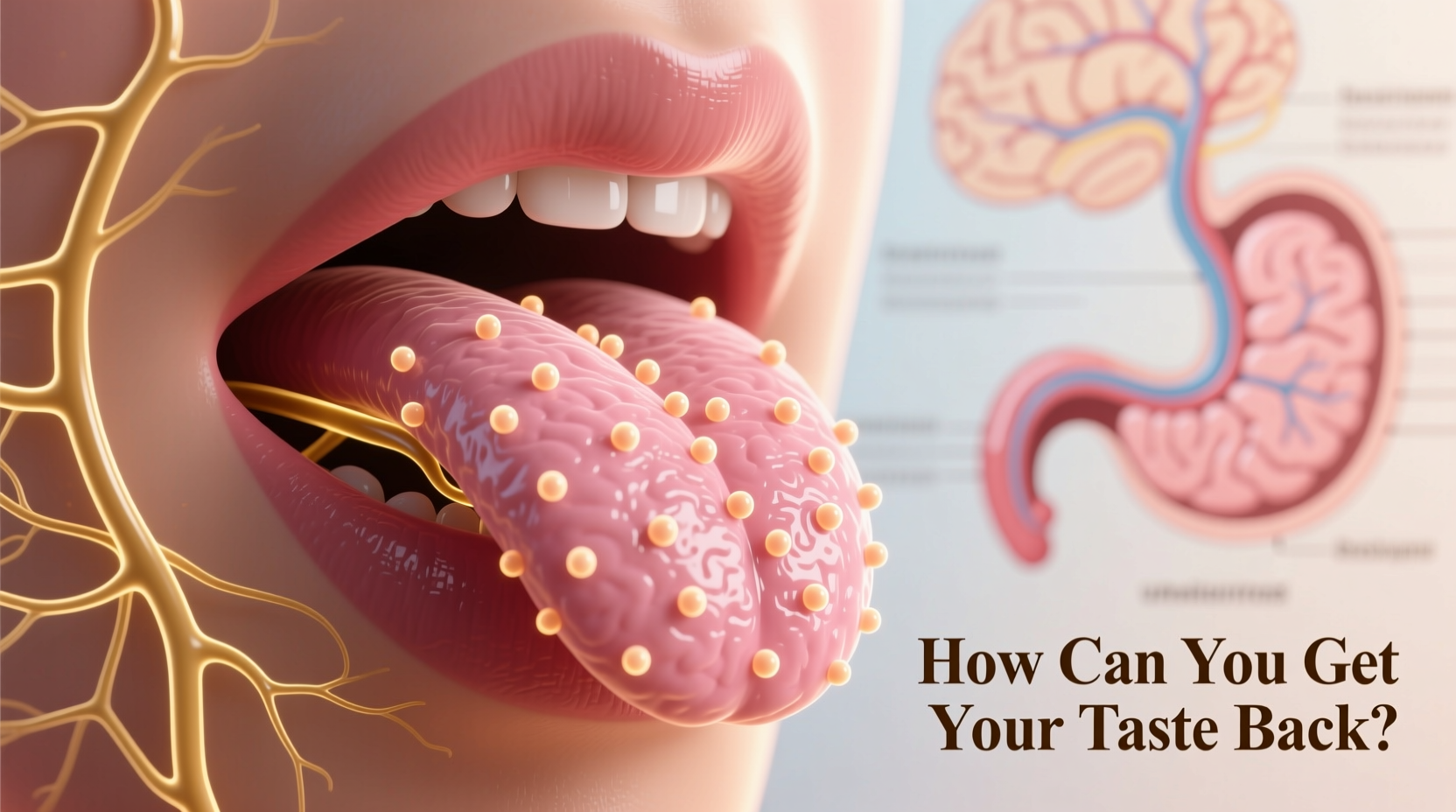Why Your Taste Disappears and How to Restore It Fast
If you've suddenly lost your ability to taste food, you're not alone. Millions experience temporary taste disorders each year, most commonly after viral infections like colds, flu, or COVID-19. The good news? Your taste buds aren't damaged—they're just temporarily disconnected from your brain's flavor processing centers. Understanding this biological glitch is the first step toward recovery.What Actually Happens When You Lose Taste
Contrary to popular belief, "taste loss" usually involves your sense of smell. True taste (sweet, salty, sour, bitter, umami) comes from tongue receptors, while flavor perception (90% of what we call "taste") requires olfactory function. When nasal congestion or nerve inflammation occurs, this flavor pathway gets disrupted.
| Cause | Recovery Timeline | Recovery Rate |
|---|---|---|
| Viral infection (common cold) | 7-14 days | 98% |
| Post-viral (including COVID-19) | 2-8 weeks | 85-95% |
| Allergies/sinusitis | While symptoms persist | 100% with treatment |
| Medication side effects | Varies | Depends on medication |
According to the CDC, taste and smell disturbances affect approximately 40-80% of COVID-19 patients, making this one of the most common neurological symptoms. The National Institutes of Health confirms that over 95% of these cases resolve completely within six months.
Your 7-Day Action Plan to Regain Taste
Days 1-2: Emergency Response Protocol
When taste disappears suddenly, your immediate actions matter most:
- Hydrate with warm lemon water - The citric acid stimulates saliva production and taste receptors
- Perform nasal irrigation using a neti pot with distilled water to clear sinus passages
- Avoid mouthwash with alcohol which dries oral tissues (opt for salt water rinses instead)
Days 3-5: Sensory Activation Techniques
Now it's time to actively retrain your flavor pathways:
- Implement smell training - Sniff strong but safe scents (lemon, rose, clove, eucalyptus) for 20 seconds each, twice daily
- Eat temperature-varied foods - Alternate between hot and cold bites to stimulate different nerve pathways
- Try zinc-rich foods like pumpkin seeds and chickpeas (zinc deficiency can prolong recovery)

Days 6-7: Flavor Reintroduction Strategy
As sensations return, maximize recovery with these chef-developed techniques:
- Layer flavors strategically - Start with salty (activates taste buds), then add sour (citrus), finishing with umami (miso)
- Use texture contrast - Combine crunchy and smooth elements to enhance sensory input
- Chew slowly for 30 seconds per bite to maximize taste receptor exposure
When Taste Loss Requires Medical Attention
While most cases resolve independently, certain warning signs indicate you should see a doctor within 48 hours:
- Complete taste loss lasting beyond 2 weeks
- Accompanying symptoms like facial weakness or persistent headache
- Taste distortion (phantom tastes or everything tasting metallic)
- History of head injury coinciding with taste loss
The Mayo Clinic recommends consulting an ENT specialist if symptoms persist beyond 10 days, as targeted treatments like steroid nasal sprays or smell therapy can accelerate recovery.
Long-Term Prevention Strategies
Protect your taste function with these daily habits:
- Maintain excellent oral hygiene (brush twice, floss daily)
- Stay hydrated (aim for half your body weight in ounces of water daily)
- Include zinc-rich foods in your regular diet
- Avoid smoking and excessive alcohol which damage taste receptors
Realistic Expectations for Taste Recovery
Understanding the natural progression prevents unnecessary anxiety. Most people experience these stages:
- Days 1-3: Complete or near-complete loss
- Days 4-7: Return of basic tastes (sweet/salty), but no complex flavors
- Weeks 2-3: Gradual return of smell-dependent flavors
- Weeks 4-6: Full flavor perception typically restored
Patience is crucial—rushing recovery with unproven remedies can actually delay healing. A 2021 NIH study found that patients who followed structured smell training recovered 22% faster than those who did nothing.
Common Mistakes That Delay Taste Recovery
Avoid these counterproductive behaviors:
- Overusing strong mouthwashes that numb taste buds
- Eating only bland foods (deprives your system of sensory input)
- Smoking or vaping during recovery (further damages olfactory nerves)
- Taking zinc supplements without medical advice (can cause copper deficiency)











 浙公网安备
33010002000092号
浙公网安备
33010002000092号 浙B2-20120091-4
浙B2-20120091-4